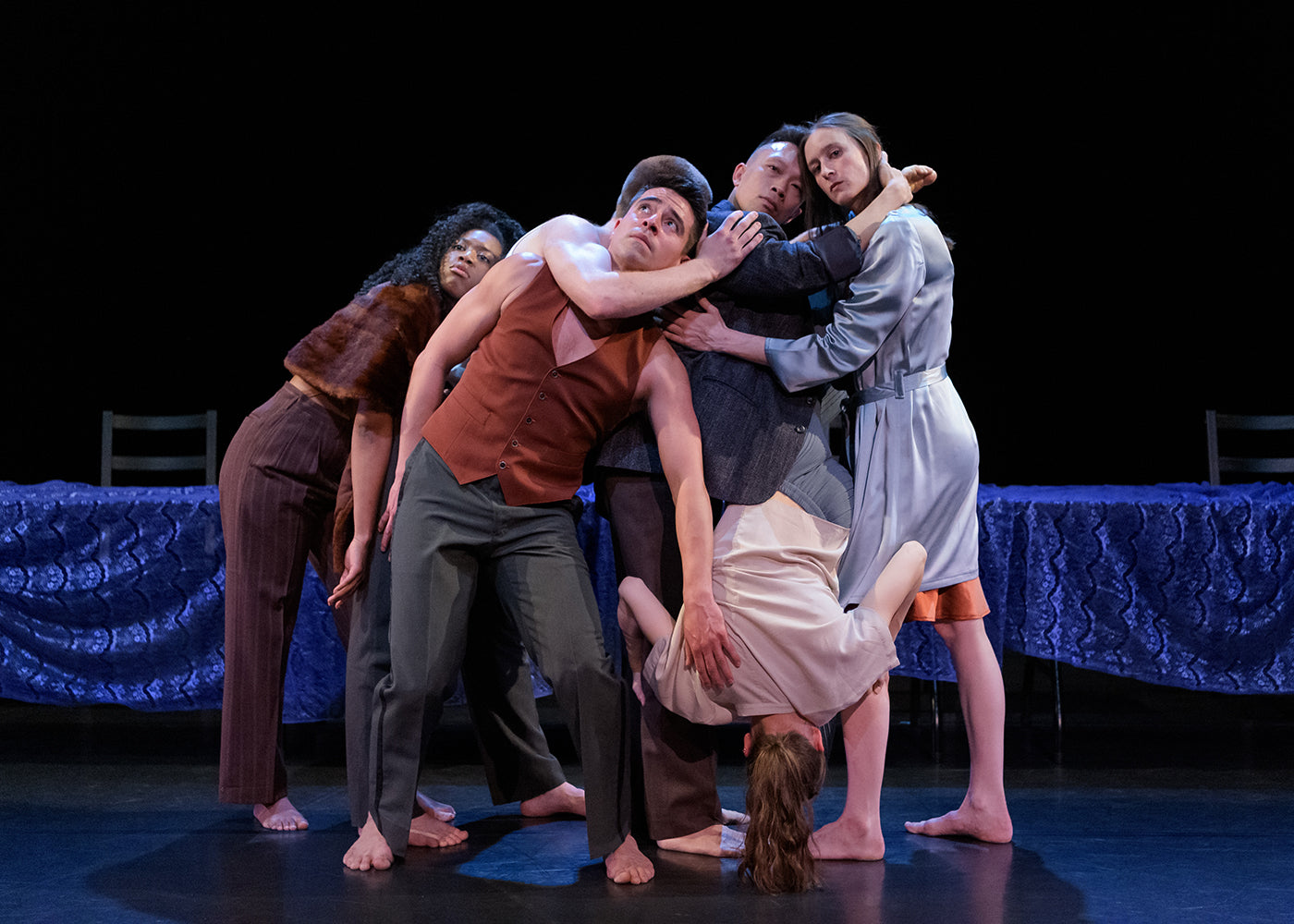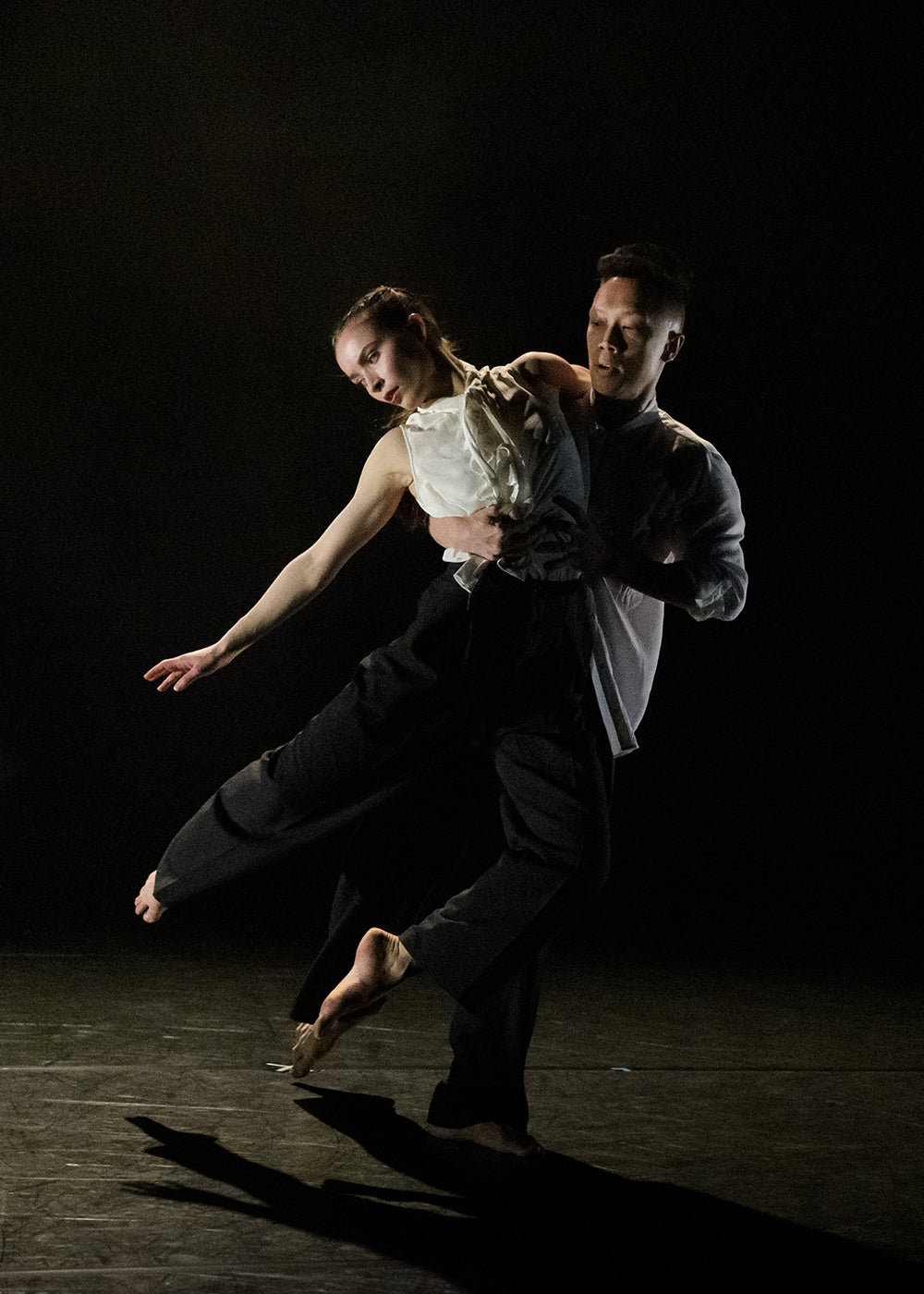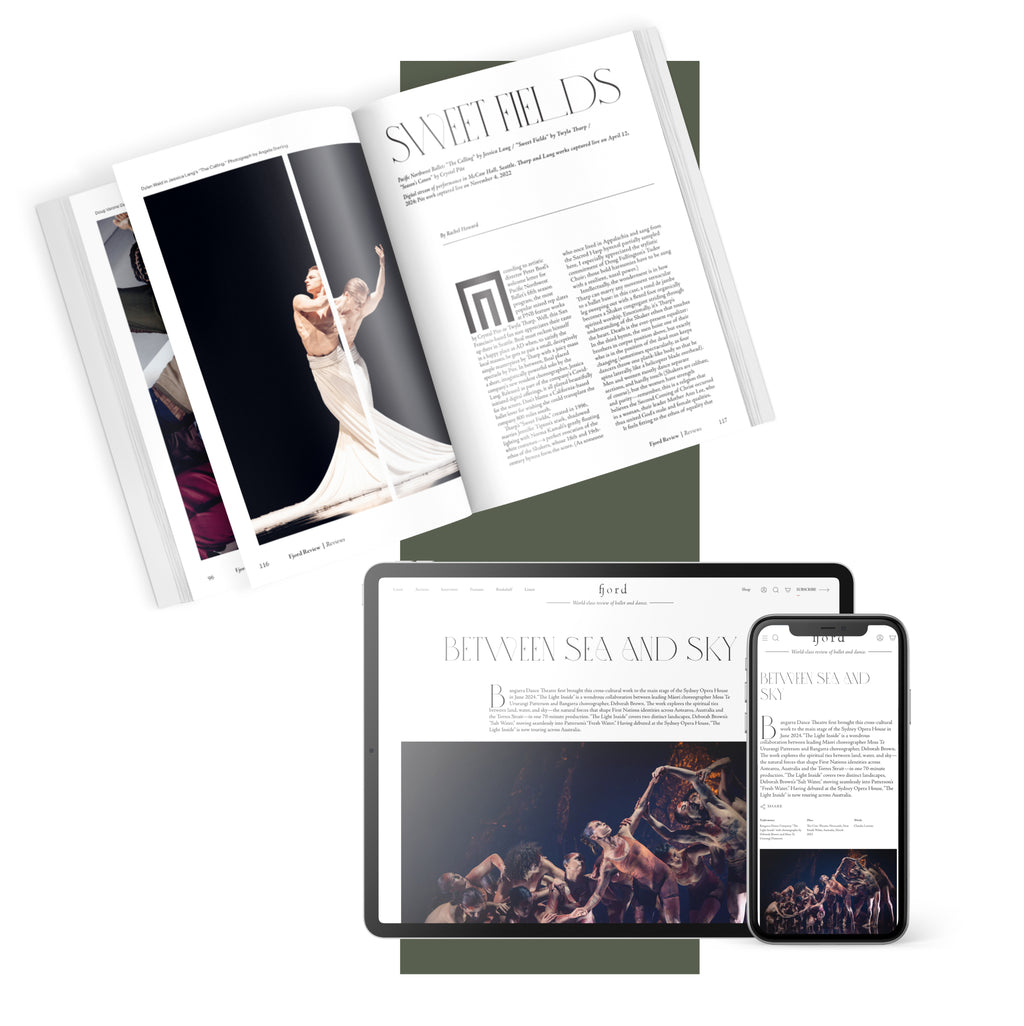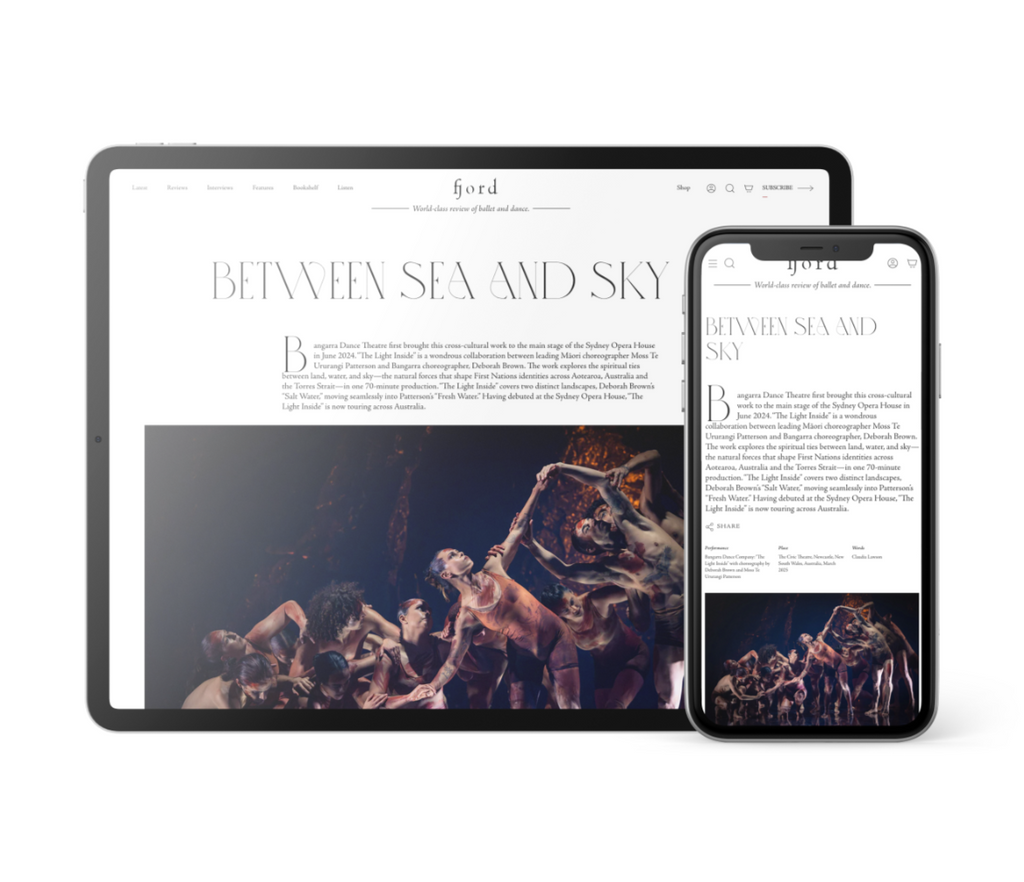Feathers Flying
In a world where Tchaikovsky meets Hans Christian Andersen, circus meets dance, ducks transform and hook-up with swans, and of course a different outcome emerges.
Continue Reading
World-class review of ballet and dance.
As a dance viewer, it’s easy to get swept up in the grand movements in a piece, glossing over the finer details. But when a piece leans into the minutiae, using small movements and motifs to drive home a central theme, it’s usually quite memorable. Ririe-Woodbury Dance Company’s 60th anniversary season closer, “Ascent,” was full of glorious details.
Performance
Place
Words




“Uncommonly intelligent, substantial coverage.”
Your weekly source for world-class dance reviews, interviews, articles, and more.
Already a paid subscriber? Login
In a world where Tchaikovsky meets Hans Christian Andersen, circus meets dance, ducks transform and hook-up with swans, and of course a different outcome emerges.
Continue ReadingMao Zedong’s famous statement that women hold up half the sky may sound poetic and even liberating.
Continue ReadingThe men are already on stage when the audience filters into the theater. Some stand stretching at the ballet barres, aligned in neat rows, and others move around, jumping, swinging their legs, lunging.
Continue ReadingThe questions that the choreographic duo known as Baye & Asa set out to answer in their in-progress work, “At the Altar” may or may not be rhetorical: Who or what do we worship? How do we worship? Who are the righteous? Who are the blasphemous?
Continue Reading
comments